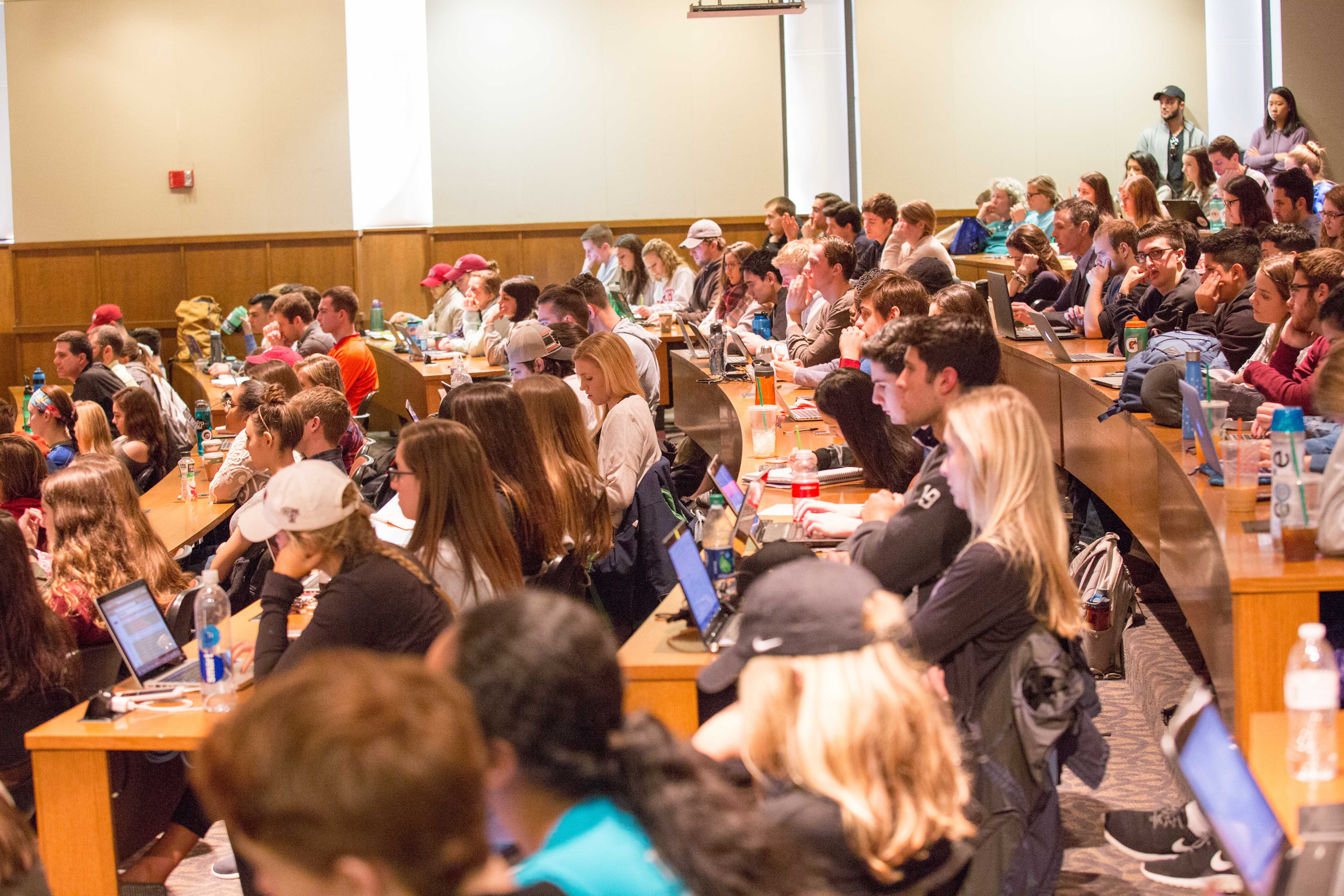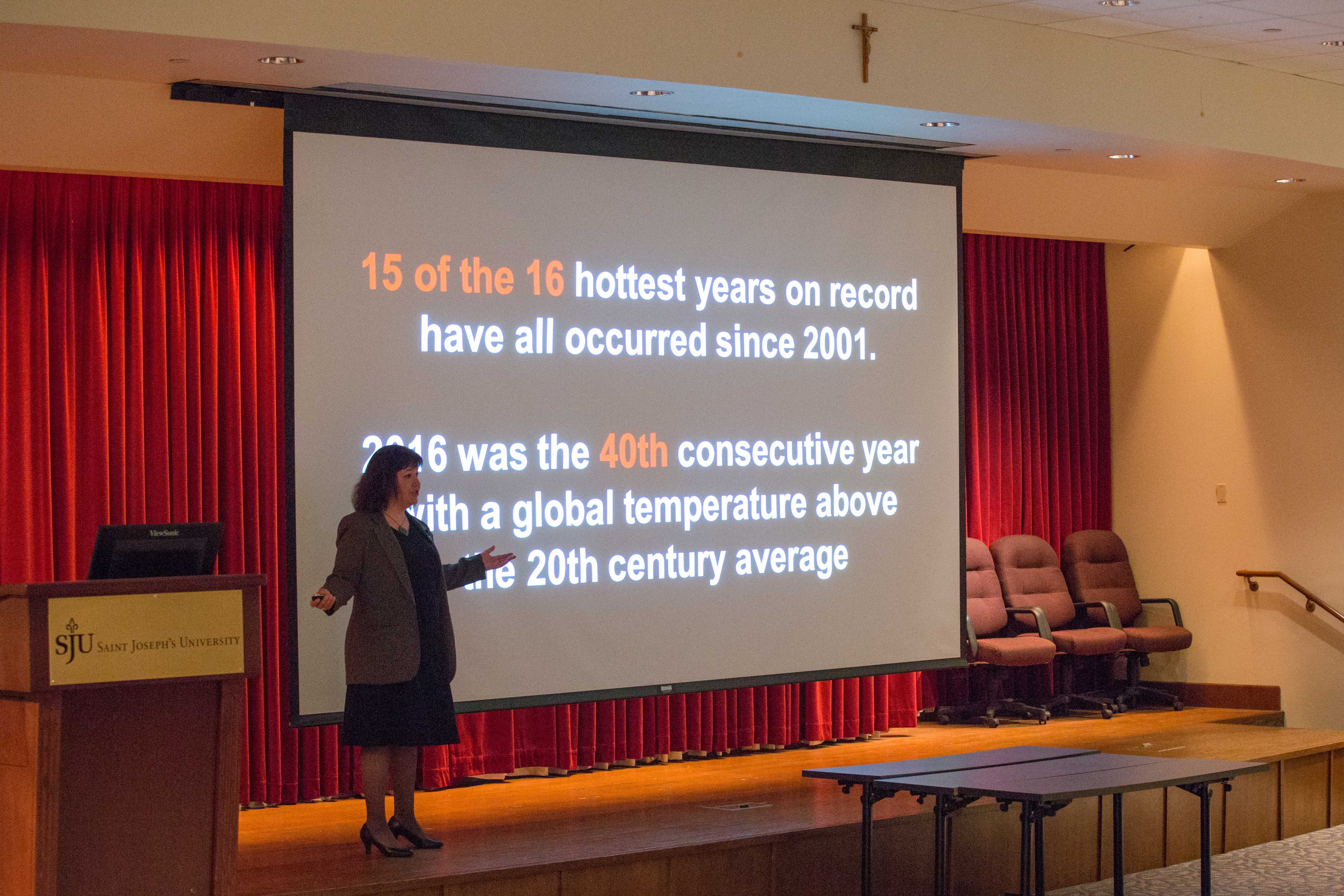St. Joe’s event discusses environmental impact on businesses
Students gathered to watch a panel of faculty discuss environmental and social values in business in Wolfington Teletorium in Mandeville Hall.
The Wall Street Trading Room and Arrupe Center for Business Ethics sponsored the event, titled “Climate Change is Real: Now What?,” that focused on businesses’ responsibilities toward protecting the planet.
Carolin Schellhorn, Ph.D., assistant professor of finance, moderated the event while the panel featured insights from Diane Phillips, Ph.D., professor of marketing, and Michael Angelina, Ph.D., executive director of the academy of risk management and finance.
Phillips, a member of Al Gore’s Climate Reality Leadership Corps, gave a presentation on The Climate Reality Project, whose mission it is to educate on the problems of climate change and propel activism.

For the past 40 years temperatures on Earth have risen, with 15 of the 16 hottest years on record starting from 2001, according to Phillips.
“Forty years is an unrecorded high,” Phillips said. “It is no longer a normal fluctuation, but a trend.”
Angelina spoke to the enormous risks of the extreme weather events, like heavy precipitation, mudslides, and hurricanes. Angelina believes that when actuaries assess the resulting damages of these occurrences, they are only concerned with the truth.
“What do the facts tell us? You can’t argue facts,” Angelina said.
As a result, actuaries acknowledge the major costs of these events on the profits of insurance companies and other businesses, taxpayers’ incomes, and all human lives, according to Angelina.
“When you measure fatalities, one in six people’s deaths have happened due to heat related incidents,” Angelina said. “Let’s not lose sight of the people factor. There is human life in everything.”
At the end of the presentation, students and faculty were invited to ask the speakers questions or voice concerns.
Thom Pearsall, ’17, member of the Green Fund, informed the audience about The Green Fund’s new initiative to eliminate single use water bottles on campus by introducing more filter stations.
“We want to create an infrastructure to ensure that all have the ability to obtain free and filtered water in any building throughout campus,” Pearsall said.

This presentation allowed attendees to focus on the prevalent and severe effects of global warming.
“There are still people who haven’t fully realized the seriousness of the effects of climate change. But, from this presentation today, I don’t think it’s something that you can pass over in any facet of life,” said Louis Andreacchio, ’18.
Pearsall, an environmental science major, developed his passion for the environment within the realm of social justice. He said that he came out to the event to see how the university was reaching out to those who do not recognize the significance of climate change.
“I learned that it is going to take an economic impact for people to be considerate about climate change,” Pearsall said. “If that is what it takes, that’s ok with me. But I wish people would realize their connectedness to the Earth.”













































